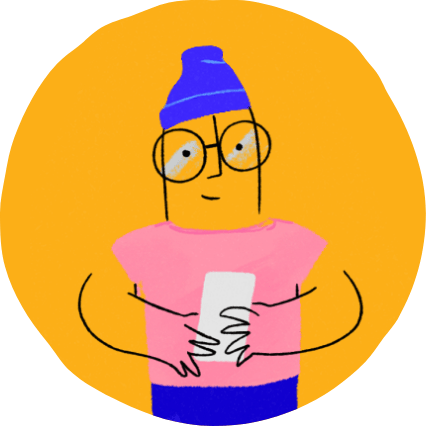You probably can't whip up a cure on your laptop.
But there is something you can do. Stop the spread of misinformation.

Check first. Share After.
-

Check where the info originally came from.

-

Check that it came from a trusted expert source .

-

Check what public health authorities and government are saying.

-

Share Once you’ve checked the info is legit, go ahead and share away. Sharing good content helps crowd out the fakes.
Footnotes: What are Trusted and Expert Sources?
-
A trusted source has a good track record and a clear process for getting facts right, like a reputable news organization.
An expert source, like a recognized scientist or health expert, has knowledge of that specific topic. Being an expert in one area doesn’t make someone an expert ineverything. Would you ask a psychiatrist to replace a filling?
Passing along bad information is like passing along the virus itself.
-
Why does it matter?
With important issues like healthcare, employment and the economy, you may be wondering why your social media habits are so important. Does it really matter if you share something that turns out to be not true?
It does. A lot.
Sharing bad information about health issues may lead others to do things that can cause real harm. People have died from taking things they were told were cures for COVID-19.
Not all incorrect info is dangerous, but it creates clutter and makes it more difficult for the good stuff to get through.
Your health, and the health of those you care about, matters.
-
What can I trust?
Keeping a running list of the sources you can and can't trust just isn't practical or effective.
When it comes to info about COVID-19:
-
Trust info from official government sites like canada.ca/coronavirus.
-
Trust info from public health agencies, including the Public Health Agency of Canada, your municipal health agency, or your province or territory’s public health agency:
- Public Health Agency of Canada
- Alberta Chief Medical Officer
- British Columbia Centre for Disease Control
- Manitoba COVID-19 page
- New Brunswick Chief Medical Officer of Public Health
- Newfoundland and Labrador COVID-19 page
- Nova Scotia COVID-19 page
- Northwest Territories Health and Social Services
- Nunavut Department of Health
- Public Health Ontario
- Prince Edward Island COVID-19 page
- Quebec Health
- Saskatchewan COVID-19 page
- Yukon Health and Wellness
-
Reputable news sources are almost always reliable, but take the time to confirm the story is accurate by checking other sources. Visit breakthefake.ca to find out how.
-
-
What should I do if I see false info?
Before you decide whether or not to respond to bad information, think about the following:
- How dangerous is the info?
- All misinformation does harm on some level, but some things - like telling people to take unproven cures or ignore public health advice - is especially dangerous.
- Is this person likely to convince their audience?
- If they seem to have influence or if they’re someone that others are likely to listen to (politician, celebrity, family member), it’s pretty important for you to push back.
- How big is the person’s audience?
- It’s not the best idea to draw attention to a false statement that few would see anyway. If their audience is a lot smaller than the audience who would see your reply, you might be better off ignoring it, or telling them in private.
- What’s your relationship to the person?
-
If someone you care about is sharing false info, you probably want to let them know.
Here’s how to do it:
-
Don’t just call them out for being wrong (that can be a little embarrassing for them). Instead, help them by sharing good information from a reliable source.
-
Focus on the values you have in common. No one wants to cause harm. Saying, “We all care about keeping people as safe as we can” is a great way to start.
-
Ask leading questions to show how unlikely the bad info is. “If there really was a cure, why wouldn’t news outlets be covering such big news? If there is some kind of conspiracy, could every government in the world really be part of it?” are the type of questions that can help.
- How should you respond to false info? Check out our helpful infographic for tips and suggestions
-
-
Why does expert advice change?
Why did the advice change about wearing masks?
If they’re the experts, why are they changing their mind on important information?
Good questions to ask. Look, right now, we’re all seeing science happen in real time. Scientists are learning more about this virus every day. A new discovery today can change what every scientist knew yesterday.
When most experts agree, based on the evidence, that something is true, the scientific consensus changes and public health authorities adapt their advice to reflect it. That doesn’t mean they were wrong before, just that the scientific consensus they were working from has changed.






